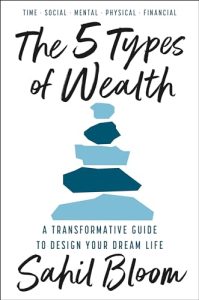
K.C. Davis’s How to Keep House While Drowning: A Gentle Approach to Cleaning and Organizing is not your typical self-help book. Instead of another list of hacks or rigid systems, Davis offers a compassionate philosophy for anyone who has ever felt overwhelmed by the endless demands of domestic life. It is short, deeply empathetic, and refreshingly human a soothing reminder that your worth has nothing to do with the state of your home.
A new way to think about housework
At its heart, this book is about reframing how we think about care tasks. Davis introduces six principles she calls the pillars of “strugglecare”:
- Care tasks are morally neutral
- Rest is a right, not a reward
- You deserve kindness regardless of your level of functioning
- You can’t save the rainforest if you’re depressed
- Shame is the enemy of functioning
- Good enough is perfect
These six ideas run throughout the book like mantras, breaking the toxic link between cleanliness and moral value. Davis argues that care tasks washing dishes, folding laundry, cleaning floors exist only to make life functional, not to prove worthiness. A clean sink is not a virtue; it is simply a tool that makes cooking easier. This perspective alone has brought many readers immense relief.
Compassion instead of shame
Reviewer Emmalita captures the spirit of Davis’s message perfectly. The author’s tone is gentle, never scolding, and filled with understanding for those who struggle with executive dysfunction, mental illness, burnout, or chronic stress. She insists that shame only fuels paralysis. Rest, on the other hand, is a right something you are entitled to regardless of how much you have accomplished.
Davis’s short chapters offer small, doable steps to regain a sense of control: clean just one corner, create “staging areas” for unfinished tasks, or reframe your goal from “clean” to “functional.” Even readers who are generally on top of their chores may find her approach liberating. It opens space for grace and flexibility instead of guilt and perfectionism.
Where the book divides readers
Some readers find this book life-changing; others find it simplistic or frustrating. Critics like Toviel and Rachel argue that Davis’s writing feels repetitive and too focused on validating emotions rather than providing practical systems. Her minimalist advice, like running a half-full dishwasher or leaving laundry unfolded, can feel unrealistic or wasteful to some. Others take issue with her social-media-influencer tone and brief chapters that sometimes read more like a series of TikTok transcripts than a fully developed manual.
Still, even critics acknowledge that Davis introduces valuable ideas about equity and rest within households. Rachel highlights one of the most profound takeaways: that chores should be divided not by strict percentages but by ensuring each household member gets equal rest time. It is a radical but humane reimagining of domestic partnership.
Why it resonates
What makes How to Keep House While Drowning stand out is its empathy. Davis writes from lived experience, as someone who has been overwhelmed, depressed, and drowning in her own home. She does not offer a perfect method; she offers permission. Permission to let go of shame. Permission to rest. Permission to see home care as a functional, not moral, act.
In a culture obsessed with productivity and perfection, Davis’s message feels quietly revolutionary. For those dealing with postpartum exhaustion, mental health struggles, or the chaos of caregiving, this book can be a lifeline.
The bottom line
How to Keep House While Drowning will not teach you how to scrub faster or fold better. It will teach you how to stop hating yourself for falling behind. It is not about cleaning it is about compassion. Whether you live alone, with family, or share a messy space with kids and pets, Davis offers a mindset that restores dignity and hope to everyday care.
If you have ever looked at your home and felt despair instead of pride, this book is for you.
Buy How to Keep House While Drowning on Amazon: https://amzn.to/46JtlHJ


